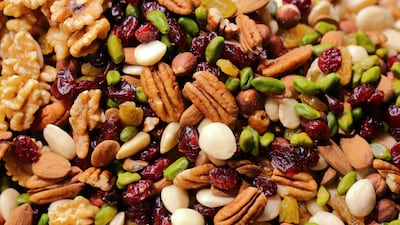A healthy diet is futile if you eat the wrong snacks — and one in four people are guilty of this.
A new study in the European Journal of Nutrition tracked the snacking habits of 854 people who mostly eat healthy meals. It found that a quarter of them either eat too much or choose low quality snacks, negating their healthy eating choices.
"We observed that snack quality matters and is associated with favourable lipemic and insulinemic responses, as well as decreased hunger," say the study's authors.
This is contrary to public perception that the act of snacking "was not associated with unfavourable cardiometabolic blood or anthropometric markers".
The study also concluded that unhealthy snacks are linked to "higher body mass index, higher visceral fat mass and higher postprandial – the period after eating a meal – triglycerides concentrations," which are associated with metabolic diseases such as stroke, cardiovascular disease and obesity.
Snack timing
The researchers define low quality snacks as confectionery, packaged savoury snacks and sugary beverages.
Snack timing is also a factor, state the study's authors. Those who snack after 9pm are more likely to choose low quality food options high in fat and sugar, and have worse blood markers that can lead to some metabolic issues compared to those who ate snacks early in the day.
However, the study also says snacking is not inherently detrimental. There are snacks that are nutritious, such as whole fresh fruit and vegetables as well as nuts and seeds, which could "play roles in mediating hunger and appetite, glycaemic control and other cardiometabolic risk markers".
Participants who frequently ate high quality foods are more likely to have a healthy weight, not only compared to those who had poor snacking choices, but also to those who don't snack at all.
"Snacking behaviour may be a key diet target to ameliorate risk factors for diet-related diseases and snacking on high-quality foods earlier in the day can be part of a healthy lifestyle," the study says.

